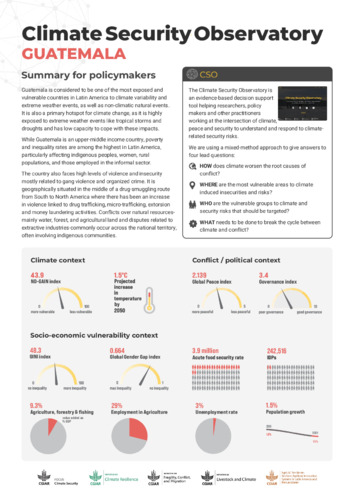Climate security observatory: Guatemala summary for policymakers
Guatemala is considered to be one of the most exposed and vulnerable countries in Latin America to climate variability and extreme weather events, as well as non-climatic natural events. It is also a primary hotspot for climate change, as it is highly exposed to extreme weather events like tropical storms and droughts and has low capacity to cope with these impacts. While Guatemala is an upper-middle income country, poverty and inequality rates are among the highest in Latin America, particularly affecting indigenous peoples, women, rural populations, and those employed in the informal sector. The country also faces high levels of violence and insecurity mostly related to gang violence and organized crime. It is geographically situated in the middle of a drug-smuggling route from South to North America where there has been an increase in violence linked to drug trafficking, micro-trafficking, extorsion and money laundering activities. Conflicts over natural resources mainly water, forest, and agricultural land and disputes related to extractive industries-commonly occur across the national territory, often involving indigenous communities.

